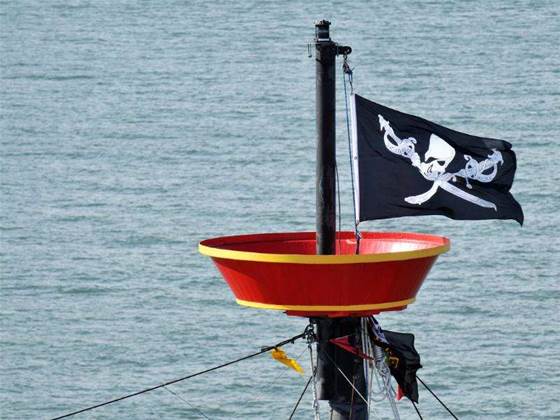Legislation that deals with internet piracy is expected to be on the political agenda next year, but appears unlikely to gain traction until rights holders exhaust their options in the courts, according to a panel of copyright lawyers.

Speaking at the Communications & Policy Research Forum last week, Truman Hoyle partner Mark Vincent said that a "legislative response" to content piracy was required.
But he also warned that such a response would not stop rights holders from suing ISPs and individuals for alleged infringement of their works.
"We think [a legislative response] will be on the agenda for next year," Vincent said.
"[But] I think it would be difficult to get legislative reforms before [the iiNet case] process is finished."
Perth ISP iiNet is being sued by the film industry for allegedly authorising copyright infringement on its network.
The landmark case is on appeal before the full bench of the Federal Court after the film industry lost its initial case. Either party could escalate it to the High Court depending on the outcome of the appeal, which was rumoured to be delivered shortly.
Vitriol and emotion
The panel of lawyers at the forum last week spoke about the level of "vitriol" that accompanied the issue of content piracy on the internet as they explored ways the issue might be dealt with in the future.
"There's a whole lot of emotion and vitriol in this debate that I just haven't seen before," said Gilbert + Tobin partner Peter Leonard.
"I've practised law for 30 years, and even in the good old days of Telecom Australia versus the rest, there was never the vitriol that [exists] in this debate."
Truman Hoyle senior lawyer Nick Hart said he was also "struck by the extent of passion and vitriol" surrounding the copyright debate.
Some of that passion was related to the rights holders' choice of litigation target, according to Leonard.
"How you deal with intermediaries has given rise to a lot of the emotion in the debate," he said.
"They feel they are wronged because they're a convenient person with deeper pockets standing between a pirate and copyright owner, while copyright owners feel intermediaries are profiting from piracy by turning a blind eye [to it occurring on their networks]."
The convenience factor was also highlighted by Vincent.
"BitTorrent is harder than ever to stop," he said.
"One reason is that the underlying code necessary to facilitate BitTorrent sharing of files around the world is now open source so there's no target [to sue].
"The open source licensing model means the code base is open to any proprietor to use and incorporate as long as they comply with the license model.
"The vulnerable people in the BitTorrent model are the trackers who provide a search engine-like service. There's been some litigation against those parties.
"Other people that may have a problem are ISPs and end users, although we haven't seen the latter in Australia."
Vincent acknowledged that the mismatch in timing between the legal process and the rate of change in technology made it harder to address infringement in the court system.
"Every time you get legal authority to shut down one model, another turns up," he said.
"It's why we argue that it's inevitable that people will look to a legislative response because merely getting lawyers to go around the world suing people is proving to be too slow."
Technological change could also make suing ISPs redundant.
"I've heard from the UK [legislative] examples that it's not necessarily an answer to users who are now moving over to encrypted file sharing," Vincent said.
"The technology might continue to move to a point where even ISPs can't help stop infringers."
However, rights holders were still likely to keep legal action in the mix of enforcement tools.
"This process of suing people... is not over," Vincent said.
Hart added: "[Litigation] does increase awareness in the public about the copyright infringement issue and the more public the legal issues around a case are, the more consumers might think twice before infringing."
Hart said there was "absolutely" a non-financial basis for suing alleged internet pirates, despite a recent leak of Record Industry Association of America (RIAA) financials that purportedly showed a major imbalance in the amount the industry spent and recouped from litigation.
"You have to ask the question of what would you do if you were representing copyright owners or controllers," Hart said.
"Do you just sit there and let it all happen or do you take what steps you can within the law?
"I think it's a multi-faceted approach [that's required] - a combination of new legitimate commercial models being rolled out plus changes in legislation and using existing laws to do what you can to stem the flow."



_(33).jpg&h=140&w=231&c=1&s=0)

_(28).jpg&h=140&w=231&c=1&s=0)





 iTnews Benchmark Awards 2026
iTnews Benchmark Awards 2026
 iTnews Executive Retreat - Security Leaders Edition
iTnews Executive Retreat - Security Leaders Edition
 iTnews Cloud Covered Breakfast Summit
iTnews Cloud Covered Breakfast Summit
 The 2026 iAwards
The 2026 iAwards












_(1).jpg&h=140&w=231&c=1&s=0)



